LEGEND:
CAPITALS:
Capital
Capital
Capital
Relationship
Capital
Capital
Capital
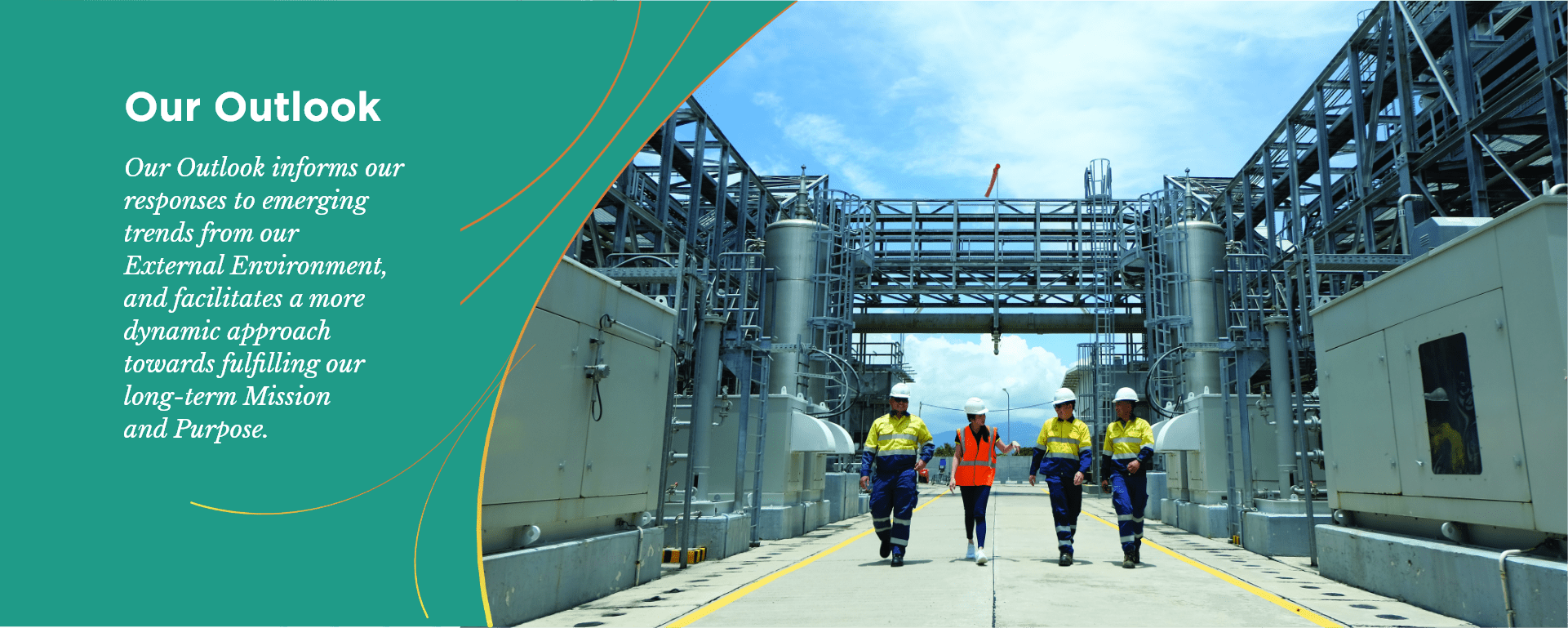
| KEY THEMES | IMPLICATIONS AND OPPORTUNITIES | OUR RESPONSE |
|---|---|---|
|
Evolving Markets and Customer Choice |
Continued democratization of the Philippine power industry
|
We are enhancing our ability to understand and prioritize our customers through increasing retail-readiness
|
|
Increased Need to Incorporate Sustainability and ESG |
Enhanced commitment to ESG and sustainability initiatives
First Gen has a commitment to Decarbonization with Net Zero and has also identified 4 Key Focus Areas for ESG, which are significantly aligned with this outlook |
We are enhancing our organization’s ability to pursue more decarbonized and regenerative business models
|
|
Growing Philippine Energy Demand |
Surge of interest and investments in clean energy solutions
|
We will pursue our 13GW growth target with a bias for RE to continue supporting our country’s growth requirements through our portfolio of clean and renewable energy |
|
Advancement of Clean Energy Solutions and Technologies |
Widespread opportunities to respond to evolving market trends
|
We keep ourselves abreast of key trends, aiming to integrate these into our business and operations
|
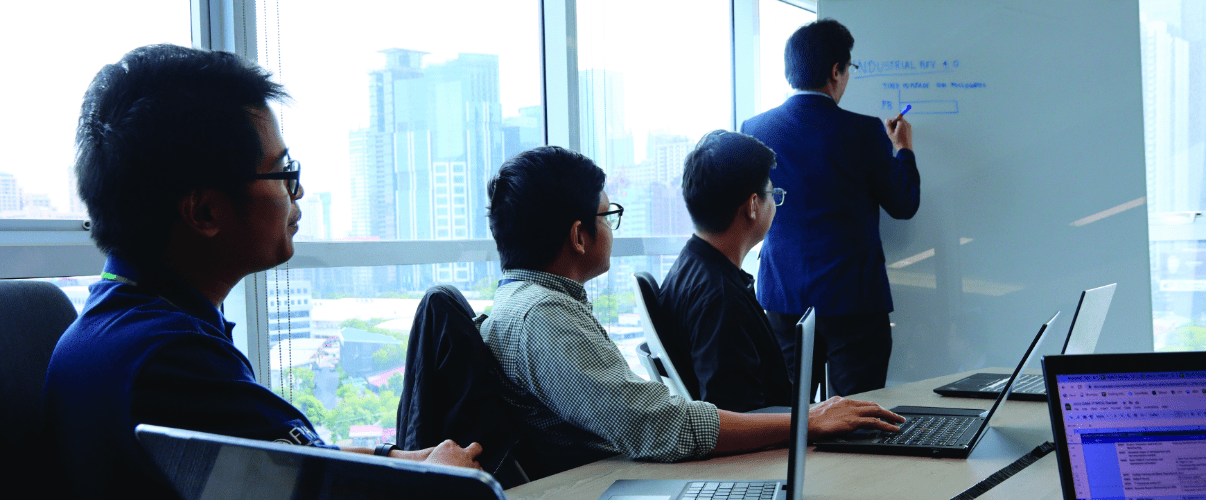
As the Philippine economy continues to develop and evolve, regulations and markets have continued to evolve towards increased customer choice. After the privatization of the different sectors of the power industry, market competition has heightened as customer choice has become more prominent.
The Retail Competition and Open Access (RCOA) program empowers customers by providing them with increased flexibility in selecting their electricity provider. Moving forward, smaller energy users will also leverage this, leading to a more diverse and customer centric market. Moreover, we expect customers to continue demanding for more sustainable and cleaner sources of energy, given market and societal trends.
For First Gen, this trend showcases the continued advancement and liberalization of the Philippine market—which will ultimately lead to enhanced customer power and further developments in the market we operate in.
RCOA enables contestable customers to choose their electricity supplier and directly contract with Retail Energy Suppliers. RCOA Phase 3 decreased the average monthly peak demand requirement of contestable customers to greater than or equal to 500MW—with thresholds set to continuously lower, allowing more customers to choose.
However, the increased demand and better flexibility given to customers require a shift in how energy providers can better serve these customers—both in improving their ability to meet that need while also maintaining their course towards decarbonized and regenerative energy generation.
As one of leading providers for clean energy in the country, First Gen will always be at the forefront to engage with and create value for customers. Further, First Gen has made securing regenerative partners one of its strategic goals, which is evidence of our expanded focus on delivering customer value and its impact on both our business and decarbonization objectives.
First Gen aims to provide customers with holistic customer experiences through our portfolio of clean energy solutions. As we prepare to serve more customers, we are constantly improving our own processes and capability to better monitor, anticipate, and deliver customer needs. Moreover, we are committed to develop solutions that best support our customers needs and decarbonization goals.
Our ambition is to become a trusted partner and decarbonization expert for our customers, helping them live a sustainable and regenerative lifestyle with convenient and reliable access to clean energy sources, as well as other decarbonized solutions. Alongside our Mission and Purpose of serving the planet and protecting the environment, we also strive to ensure energy security for our customers maintaining our competitiveness in the clean energy market.
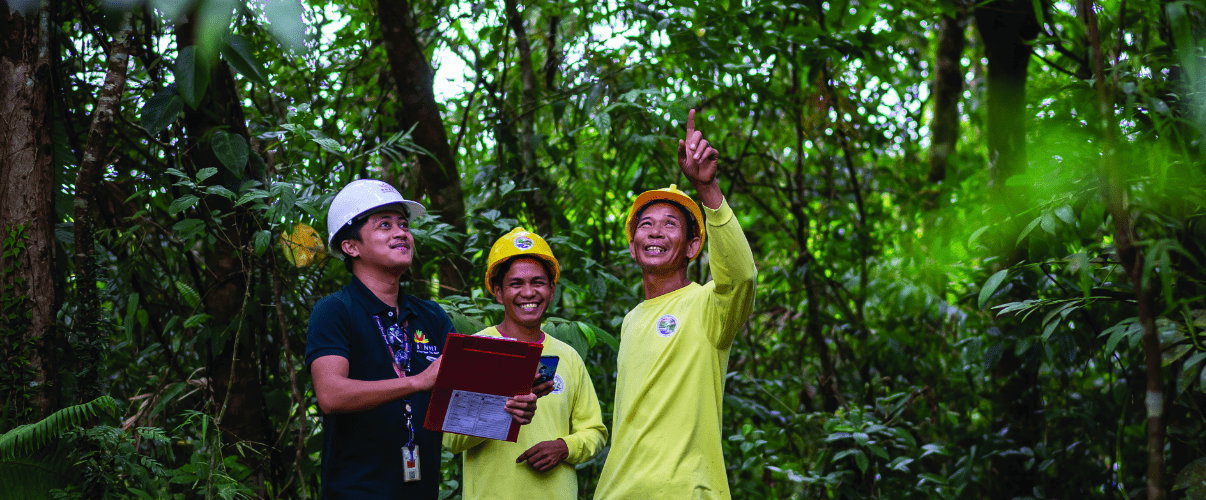
A growing awareness on the impact that businesses and other commercial activities have on climate change has fueled renewed commitments from the business sector to invest in their ESG and sustainability initiatives. This comes at a time when the energy demands of the Philippines are only expected to increase.
Businesses must increase their efforts to transition to clean energy sources, not only to comply with evolving environmental regulations, but also to keep the trust of their customers. The role that energy providers will play in steering this discussion and movement toward sustainable energy—and, by extension, sustainable business practices— will be of crucial significance for the Philippines.
Both global and local markets have aligned expectations to proceed with clean energy, with the Philippines committing to a 75 percent reduction of carbon emissions in the Nationally Determined Contributions (NDC) with the United Nations Framework Convention on Climate Change (UNFCCC).
Supporting this commitment, the Philippines issued a Coal Moratorium which intends to put a limit on the development of new coal-fired power plants. The DOE’s PEP calls for a ~3x increase in GW capacity for gas and RE sources and a ~2.5x increase in KWh generation from gas and RE sources by 2030. The PEP and NREP also want a 35 percent RE share in 2030.
Energy providers are also incentivized to pursue RE development with multiple fiscal incentives under the Renewable Energy Act. The Bangko Sentral ng Pilipinas has also released the Sustainable Central Banking Strategy to welcome further investments. Alongside new innovations in decarbonization and access to better technology, these developments should encourage more gas and RE development moving forward.
Moreover, this trend creates opportunities beyond kWs and kWhs, as it also enables other adjacent industries to pursue decarbonization. One of these opportunities is DOE’s Demand-side Management (DSM) Program under the Energy Efficiency and Conservation (EE&C) Act in the EE&C 2023-2050 Road map. It expects technological innovations across the energy industry, encouraging development and innovation beyond simply providing more kWh to customers.
As such, there is a clear need and opportunity in the country for clean energy development, especially given the growing recognition of the climate crisis and the key role of the power sector in mitigating and adapting to its impact.
First Gen is aligned with stakeholder expectations to integrate decarbonization and other ESG concepts in our business model. We have shown this in the past, particularly with our decision to not build, develop, or invest in coal, as well as our pursuit of various decarbonization initiatives that lead to our long-term Net-Zero commitment.
As we remain commit to our Net-Zero Target, we are aware that our ambition will require us to further decarbonize our portfolio and pursue various new technologies, systems, processes, additional investments, or other operational adjustments, as we progress towards the clean energy ambition.
To support this response, First Gen regularly conducts strategic discussions, research, and analysis on various regenerative business models and other means of decarbonization. The Company also continuously monitors the advancements in technology and operational efficiencies, adapting the most advantageous practices for the benefit of First Gen and our customers. With these approaches, the Company hopes to serve as an example of how to integrate ESG and sustainability into business operations while helping our own customers do the same with their commercial ventures.
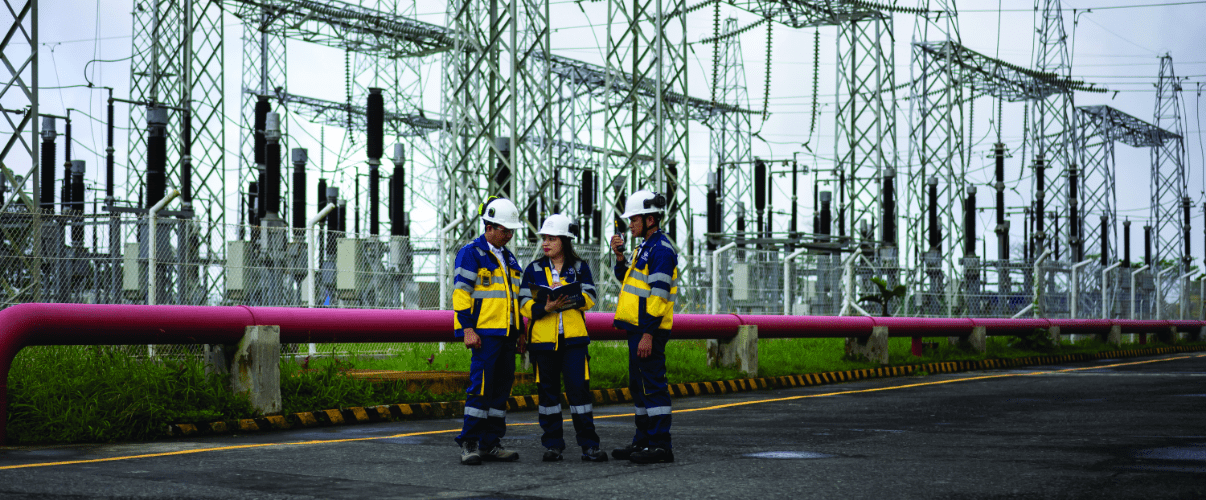
Earlier segments of this report have already discussed the DOE’s PEP, which highlights how the energy demand in the Philippines will only continue to grow. Moreover, the same report highlights its outlook that sees most of this growth coming from Clean and Renewable Energy sources. For energy providers, this presents both a challenge and an opportunity: how to meet these rising energy demands while balancing the Energy Trilemma of affordability, sustainability, and security.
Clearly, the country is pursuing ways to fuel the demand of its growing economy. At the same time, several market mechanisms and regulatory considerations are still being developed in order to facilitate this critical transition.
This outlook of the energy sector highlights significant opportunities for growth in the clean and renewable energy fields. This rapid energy growth is an opportunity for clean energy players, as there will be a need to supply the increased demand for clean energy.
As First Gen’s clean energy portfolio continues to stand in support with the country’s push for renewables, we are expected to sustain growth at pace with the country’ s energy demands to ensure reliability on the grid.
First Gen will continue to pursue growth and project opportunities in different Gas and RE capacities, while ensuring that the Company is still able to meet customer expectations about energy supply and security. This includes continuing to move towards a total of 13GW installed capacity with a bias towards RE sources by 2030. Our growth ambition is critical to supporting, not only our strategic aspirations, but also to helping enabling the country’s need for additional clean and renewable energy sources.
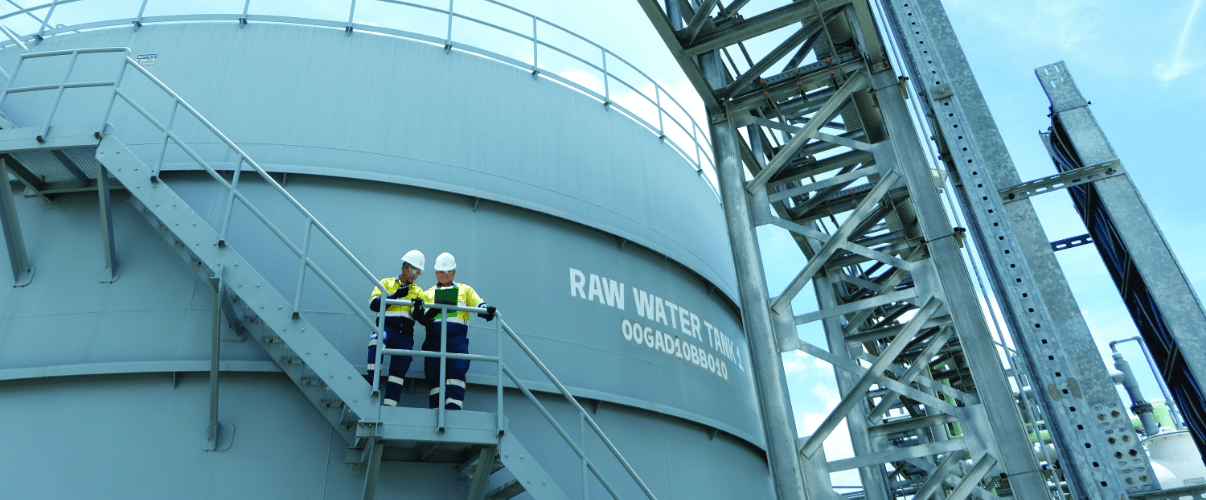
As seen in the IEA reports, globally, the energy market continues to be disrupted, amidst significant trends such as rising customer demand, the increased push towards renewable energy, and the changing shifts locally and abroad. In spite of all the volatility in geopolitical and economic conditions, advancements in renewable energy and other decarbonized technologies have continued to progress. Variable renewable energy prices continue to decrease, while research from IEA and other reports on critical technologies such as hydrogen, carbon capture, battery storage, and others continues to progress in spite of turbulent times.
Clearly, industries have continued to support clean energy development, in spite of an inflationary and volatile environment. While the pace of development may remain uncertain, the trajectory remains clear—towards lower cost and more viable clean energy solutions.
The continued progress on clean energy technology is a critical opportunity for clean energy players such as First Gen. The increasing economic viability of these solutions will improve the value that our portfolio can offer over time. WIth the aforementioned shift towards a retail-centric and more sustainability-focused market, we see this advancement as a critical enabler in better serving the needs of our customers.
Furthermore, we anticipate that advancements in key decarbonization technologies such as hydrogen and CCUS will support our portfolio’ s ability to fully decarbonize, in light of both our long-term Net-Zero ambition and our duty to support the country’s energy security.
First Gen has anticipated the changing shifts in the energy market, becoming one of the early adapters in clean and renewable energy in the Philippines. With this in mind, this Outlook further encourages our goal of expanding our portfolio and pursuing a portfolio that is more slanted towards renewables.
Furthermore, the company remains abreast of key developing technologies, solutions, and processes that can enhance the portfolio’s ability to deliver low carbon energy solutions to our customers. We tightly follow key developments on clean energy technologies and market trends, and aim to quickly and dynamically adapt such regenerative solutions into our business processes and strategy.
This response is also embedded into our internal operations, as we provide our employees and staff with the training and support they need to respond to these changing market trends. We strongly believe that our investment in our human capital is key to increasing our employee engagement, buoyed by our adoption of the latest technology and growth strategies.